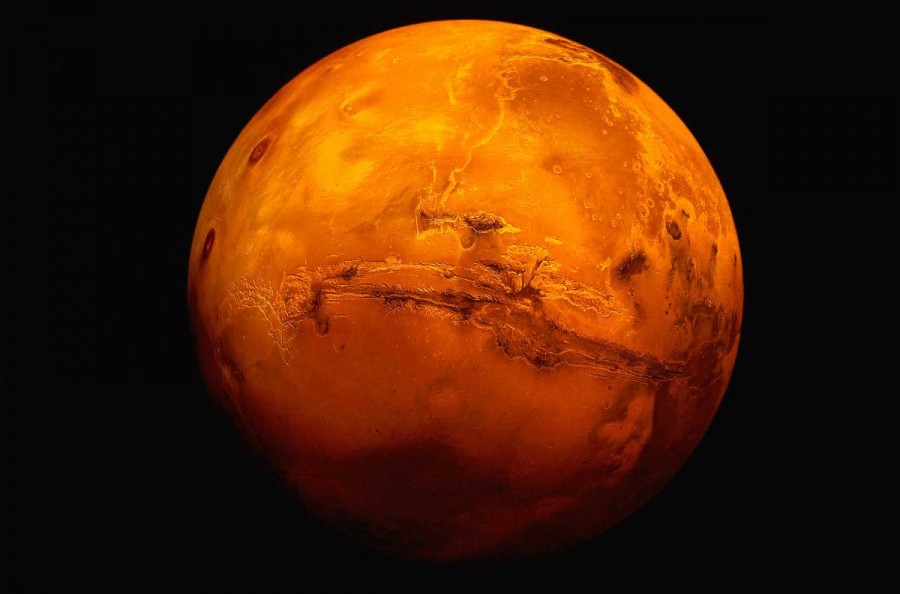Another World
Recent studies from NASA prove that water on another planet is no longer wishful thinking; it is reality. In late September, the Mars Reconnaissance Orbiter provided strong evidence of liquid water on the fourth planet from the sun. Mars would be the fourth planet to contain some source of H2O, after Earth, Venus and Pluto.
When Mars’ temperature reaches anywhere above -10 degrees Fahrenheit, researchers have found dark, flowing streams in a variety of locations around the planet. Although they disappear during colder seasons, the fact that water is flowing on Mars is exciting both scientific communities and society alike.
“It seems the more we study Mars, the more we learn how life could be supported and where there are resources to support life in the future,” stated NASA scientist Michael Meyer.
This possibility of colonization is exciting; however, at least one St. Dominic student thinks there is still work that needs to be completed.
“Water on Mars opens up a new avenue for exploration, but there’s still much to discover before we can plan to make settlements,” said senior Keenan Bross.
Another SDHS senior, Joey Kuhn, is thrilled with the idea.
“With this discovery and the recent film, The Martian, I hope that public support for space exploration will go up and get NASA back to where it belongs: space,” said Kuhn.
Although there may be work to do before colonization is feasible, the progress is undeniable. In 2001, hydrogen was found on the red planet, as well as frozen ice in 2008. Now, with the recent discovery of liquid water, Dr. Ghosh of NASA expects to manufacture oxygen by 2020.
“We will soon be launching an insight mission to Mars to explore it using small satellites called cube sats, seismometers, heat flow instruments and a small weather station. In 2020, we will for the first time try to manufacture oxygen on Mars,” said Dr. Amitabha Ghosh, as reported by Customs Today and The Indian Express.
The possibility for future life outside of Earth is exciting nonetheless. Who knows? Maybe some of us will be living on Mars one day.

Sean is a senior at St. Dominic High School who is involved in varsity soccer, the spring musical, NHS, Pro-Life Club and Music Inc. In his free time,...







